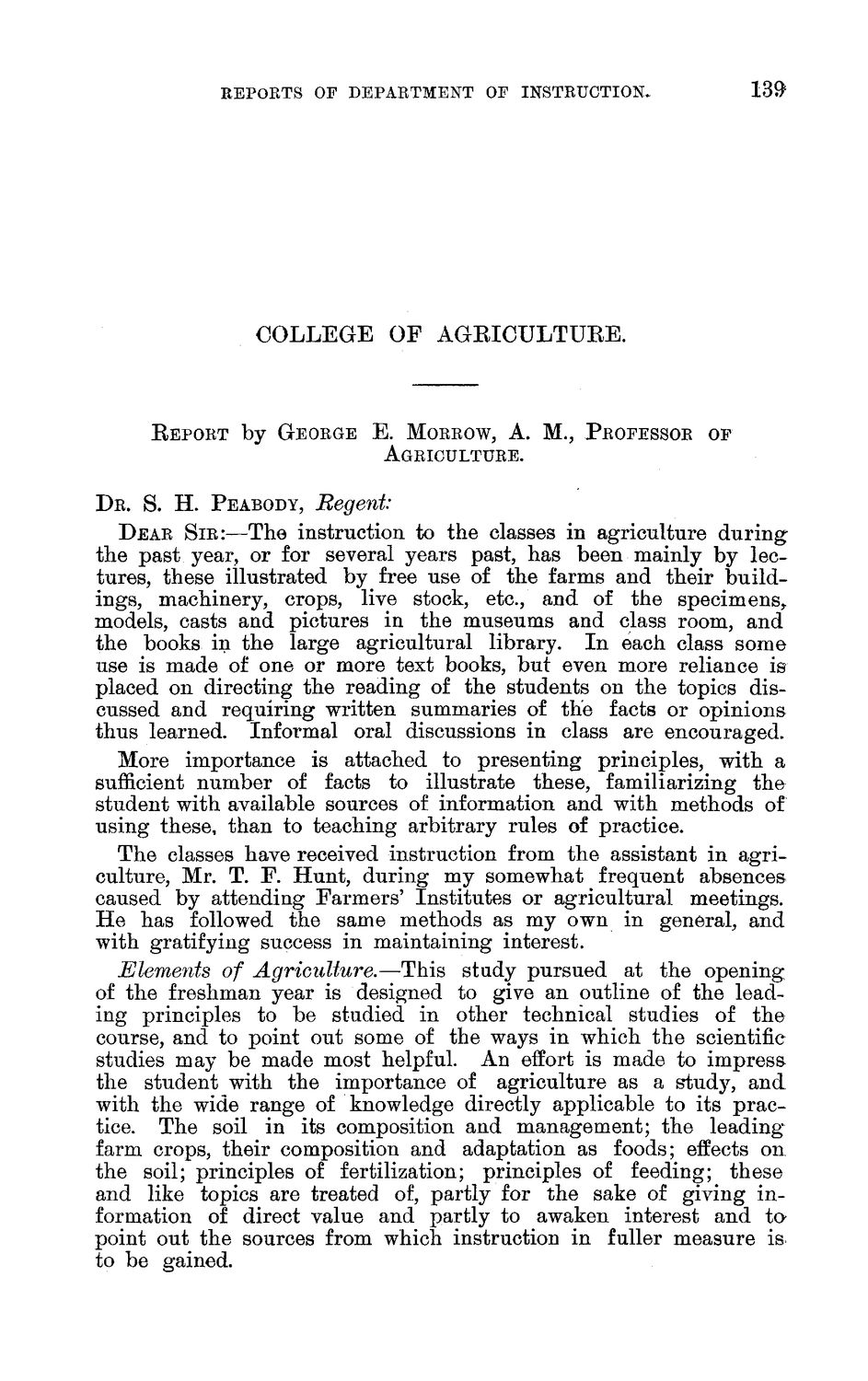| |
| |
Caption: Board of Trustees Minutes - 1888
This is a reduced-resolution page image for fast online browsing.

EXTRACTED TEXT FROM PAGE:
REPORTS OF DEPARTMENT OF INSTRUCTION. 13$ C O L L E G E OF A G K I C U L T U B E . EEPORT by GEORGE E. MORROW, A. M., AGRICULTURE. PROFESSOR OF S. H. PEABODY, Regent: DEAR SIR:—The instruction to the classes in agriculture during the past year, or for several years past, has been mainly by lectures, these illustrated by free use of the farms and their buildings, machinery, crops, live stock, etc., and of the specimens, models, casts and pictures in the museums and class room, and the books in the large agricultural library. I n each class some use is made of one or more text books, but even more reliance is placed on directing the reading of the students on the topics discussed and requiring written summaries of the facts or opinions thus learned. Informal oral discussions in class are encouraged. More importance is attached to presenting principles, with a sufficient number of facts to illustrate these, familiarizing the student with available sources of information and with methods of using these, than to teaching arbitrary rules of practice. The classes have received instruction from the assistant in agriculture, Mr. T. F. Hunt, during my somewhat frequent absences caused by attending Farmers' Institutes or agricultural meetings. He has followed the same methods as my own in general, and with gratifying success in maintaining interest. Elements of Agriculture.—This study pursued at the opening of the freshman year is designed to give an outline of the leading principles to be studied in other technical studies of the course, and to point out some of the ways in which the scientific studies may be made most helpful. An effort is made to impress the student with the importance of agriculture as a study, and with the wide range of knowledge directly applicable to its practice. The soil in its composition and management; the leading farm crops, their composition and adaptation as foods; effects on the soil; principles of fertilization; principles of feeding; these and like topics are treated of, partly for the sake of giving information of direct value and partly to awaken interest and t a point out the sources from which instruction in fuller measure is to be gained. DR.
| |